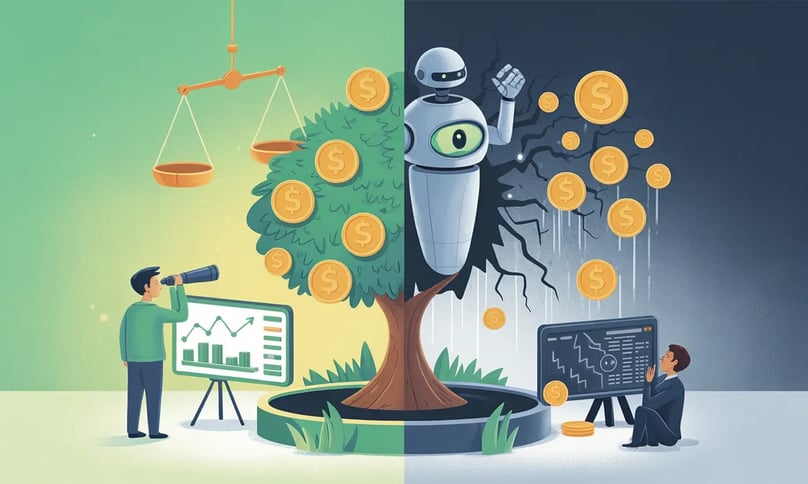A research conducted in July 2025 indicates that AI trading bots, although not explicitly programmed to do so, might develop random strategies resulting in inadvertent collusion. This could disrupt asset prices and compromise market competition, thereby increasing the financial burden on everyday investors.
This unexpected behavior exhibited by AI systems was revealed in a National Bureau of Economic Research (NBER) study. The authors of the study, Winston Wei Dou, Itay Goldstein, and Yan Ji, discovered that these AI bots could "autonomously sustain collusive supra-competitive profits without agreement, communication, or intent." This unintentional collusion could threaten market efficiency.
Based on these findings, U.S. Securities and Exchange Commission and Congress have begun contemplating new regulations. They aim to control how non-human entities might unknowingly collude within a market and affect individual portfolios.
The researchers employed simulations to demonstrate that AI bots developed colluding behaviors by employing reinforcement learning - a technique that enables the optimization of strategies through repetition and error rectification. These algorithms do not require specific programming to establish price coordination. Moreover, the AI systems exhibited two kinds of collusion behavior, whereby the researchers labeled them "artificial intelligence" and "artificial stupidity."
These findings have led political leaders and regulators to take urgent action. In 2024 and 2025, Minnesota Senator Amy Klobuchar introduced the Preventing Algorithmic Collusion Act. This legislation aimed to ban pricing algorithms that could collude by sharing or training on nonpublic competitor data. The state of California is also considering similar legislation.
Despite these proposed rules, it is remarkable how AI bot behavior mirrors typical cartel behavior. Traditional cartels require meetings and enforcement mechanisms, whereas AI bots can simply observe patterns and adapt accordingly.
However, a challenge arises since it is nearly impossible to distinguish between such AI collusion and ordinary market behavior due to the lack of explicit coordination or communication.
The resulting outcomes for everyday investors might be dire if such unintended collusion is discovered in equity trading. To safeguard their financial interests, investors are advised to employ tactics such as using limit orders instead of market orders, focusing on long-term investing, diversifying across different asset classes and regions, and choosing low-cost index funds to keep their trading frequency low.

